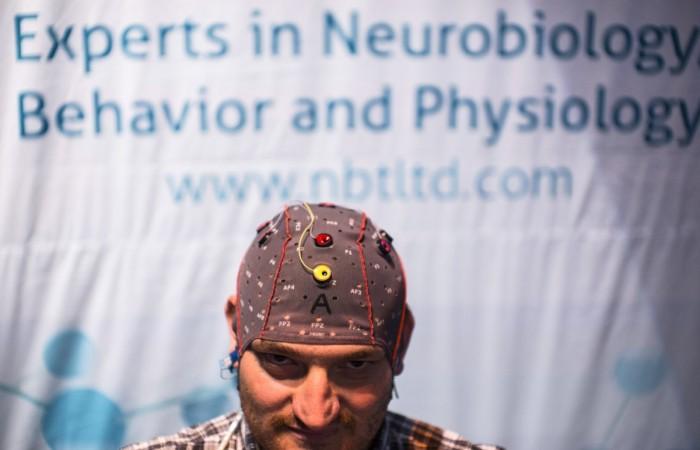Imagine being able to control gadgets without having to use the slightest of physical effort, the power of controlling your smartphone and opening apps without even touching its screen! It sure feels like a mindreading superpower straight out of a sci-fi or a superhero flick, but soon it will be a reality, all thanks to Microsoft.

The company that made computers friendlier and more accessible with its Windows operating system is now working on a new interface that lets users control gadgets and open apps using only the power of their thought.
Microsoft has released details of a "brain control" interface that decodes electrical signals from the brain - instead of gestures - to launch and operate apps and web browsers.
The interface works with the help of special headbands which have sensors that detect electroencephalogram readings (EEG) from the brain. The device then decodes these EEGs to detect when the users want to swipe, open an app, push a button or click on the mouse.
With this new interface, Microsoft seems to be taking on Facebook, which is currently working with a team of 60 engineers to develop a "mind controlled" Brain Computer Interface (BCI) technology.
The Redmond giant's patent - "Changing an application state using neurological data" –was filed with the US Patent and Trademark Office in early January 2018.
According to the patent, "Neurological user intention data corresponding to a physical gesture is generated when a user thinks about and/or focuses on a movement, in the same way, an amputee might think about moving an amputated limb."
"The application state is automatically changed to align with the intended operation, as determined by received neurological user intent data, so that the intended operation is performed," the patent reads.

The patent filing describes decoding electrical activity in the brain, which is displayed as EEG readings, using sensors on the scalp.
A report by The American Genius says that Microsoft's patent might be trained to read this data and work out what particular brain signals instigate certain physical gestures.
The technology can be used to detect when someone wants to swipe, click on the mouse or push a button. Along with that, it describes sophisticated machine learning algorithms that could learn an individual's brain behaviour over time, meaning each device can be tailored to suit a particular user.
If this technology materialises, it could be used extensively in the gaming industry, in AR and VR simulators, 3D modeling software (like AutoCAD, Autodesk etc.), in web browsers and even word processors.

Apps that control machine tools and machinery like robotic arms could also be used with the new technology.
Microsoft's patented technology can also prove to be very helpful in the medical field, especially in helping amputees or paralysed patients who are unable to move their limbs.
Meanwhile, last year, Facebook CEO Mark Zuckerberg confirmed rumours that the company was also developing a 'mind control' brain interface.
"We are building further out beyond augmented reality and that includes work around direct brain interfaces that one day will let you communicate using only your brain, although that stuff is pretty far out," Zuckerberg had said back in April, 2017.
The world's largest social networking site also announced that was developing optical sensors that allow people to type up to 100 words per minute using only their thought.











